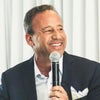3 Simple Lessons to Maximize Your Education and Achieve Your Dreams When choosing a school or program, be sure that "situational knowledge" is on the curriculum.
Opinions expressed by Entrepreneur contributors are their own.

Education is certainly an essential aspect of life, but many schools and their programs fail to maximize the potential of the students due to one simple error: They don't combine classroom instruction with firsthand experience.
It's difficult for any graduate to succeed in a new environment without what I call "situational knowledge". The definition of situational knowledge is rather simple: Knowledge you've acquired not through merely listening, but the experience of doing. This knowledge can only be gained in two ways -- through your actual experience or from the guidance of a mentor who has gone through a similar situation. And today's top-tier educational programs will ensure that their students are prepared with this understanding of how the real world operates outside of a classroom.
Related: Never Stop Learning: How Self-Education Is The Key To Success
On a recent trip to Full Sail University, I got to see firsthand how this particular institution is providing situational knowledge to their students. They recently launched the Dan Patrick School of Sportscasting, and it has changed the way I view education. Here are three powerful lessons I took from it.
1. Find a program with teachers and mentors who have situational knowledge.
Dan Patrick's post-graduation struggles were something that countless new graduates also have to contend with. "I graduated from the University of Dayton," Patrick said, "then I thought, 'Well, where's my job?'" Dan found himself educated enough to attain a degree, but not enough to take on an uncharted path to his dream job of sports broadcasting. That's why Dan and the Full Sail team put together a program to empower the next generation of sportscasters with the "hands-on" tools they will need as they embark on careers in the industry.
There are no better instructors than those with decades of actual experience in their industry. And this is why Full Sail's sportscasting program, led by program director Gus Ramsey, is so unique. Having spent more than 20 years as a producer for ESPN's flagship program, SportsCenter, there are few instructors more qualified to prepare students for life in front of (or behind) a camera. Like Dan, Gus has seen many new production assistants walk into the doors of ESPN's headquarters with their "heads spinning", unprepared for the real-life challenges they will face. He is driven to educate his students so that they do not have to endure the same hardship and struggle during the learning curve.
Related: 25 Lessons Business School Won't Ever Teach You
The best education pairs students with mentors who have invaluable experience to share; those who know what it takes to succeed in an organization or role, and can provide the right feedback to their students. Mentors can prepare their mentees for the tests they will face in the real world and give them the right tools to get the job done. Experienced mentors can show students exactly what it takes to succeed in a profession, and eliminate misconceptions about a given job.
Dan Patrick cites this as a key factor when educating the next generation of broadcasters: "Everybody thinks you turn on a microphone and you talk. That's not the case. Everybody thinks you just sit in front of the camera and you talk. That's not the case. As a teacher, you have to dispel those myths, so they understand this is what this job really is. This is what it takes to get from here to there."
2. School should push you to be your best, not just push you out the door.
One of the most important aspects for any academic program is to have high, but realistic, expectations for students and push them to pursue their potential in whatever ventures they choose. These programs must produce job-ready graduates and provide constructive feedback so that graduates can achieve their goals without having to learn the hard way: experiencing failure after failure until they finally get it right.
The best feedback from instructors and mentors helps students understand the areas in which they need to improve in order to succeed, as well as guide them to make adjustments if they find that they fit certain roles better than others.
Related: 37 Free Social Media and Marketing Courses to Elevate Your Skills
3. Hands-on experience with the latest tech and trends is essential.
Full Sail's Dan Patrick School of Sportscasting also stood out to me because of the program's focus on adaptation. Their month-to-month curriculum not only looks to instruct students on the current state of sportscasting but is flexible, allowing instructors to make adjustments based on new developments in the industry.
In an ever-evolving business environment, programs that adapt to changing technology and strategy will produce more job-ready graduates. A program's curriculum must have a focus on preparing students with the tools of the trade that are currently being utilized, as well as the pioneering tools and techniques that are trending toward widespread use.










